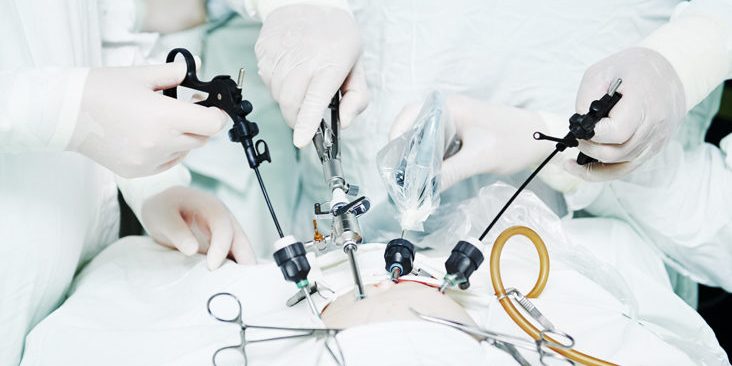Laparoscopic surgery has revolutionised the surgical approach to cancer treatment in the gastrointestinal tract. The surgery is performed with the help of advanced laparoscopic instruments inserted through a few millimetre cuts. This is a minimally invasive approach when compared with open surgery that requires a large cut down in the middle.
Among the benefits are improved oncological outcomes, less pain, very short hospital stay, minimal scarring and faster return of bowel function. Dr Aravinda Dissanayake, Oncological Surgeon at Durdans Hospital says, “Although the surgery is more time consuming than open surgery, the patient is up and walking the very next day. Furthermore, it causes minimal blood loss which eliminates the need for a blood transfusion.”
Minimally invasive oncological surgery involving the gastrointestinal tract may include resection (surgical removal of the affected part through tiny incisions) and reconstruction (connecting the remaining parts together). This reduces surgical trauma which can help preserve the patient’s immunity at a cellular level, aid fast recovery and minimise surgical infections.
Cancers in the gastro intestines may begin as an abnormal growth called a polyp or ulcer. Common symptoms of the lower gastro-intestinal cancers (large bowel) are weakness or fatigue, unexplained weight loss, abdominal pain and changes in bowel habits, such as diarrhea, constipation or more-frequent bowel movements and painless bleeding from the back passage (PR Bleeding) or haemorrhoids (piles). Cancer in the upper intestines may cause symptoms such as difficulty in swallowing, food or acid reflux, persistent cough or hoarseness of voice, loss of appetite and chronic chest and back pain.
Risk factors for gastrointestinal cancers include family history (genetic), obesity, smoking, food habits and long-standing inflammatory bowel disease (IBD) especially with ulcerative colitis (UC).
Early detection, diagnosis and treatment leads to better outcomes for GI cancer patients. If you have symptoms that worry you, reach a specialist.
Dr Aravinda Dissanayake is an oncological surgeon specialising in laparoscopy, breast surgery and cancer surgery including complex sphincter saving cancer surgery. He is equally skilled in all forms of general surgery and has performed and presented papers on Total Laparoscopic Oesophagectomy: A Sound Oncological Procedure , Breast cancer in Young Women in Sri Lanka and Sentinel Lymph Node Biopsy using Methylene Blue Dye.
For more information on GI related surgery or oncological surgery contact 0767174051.








